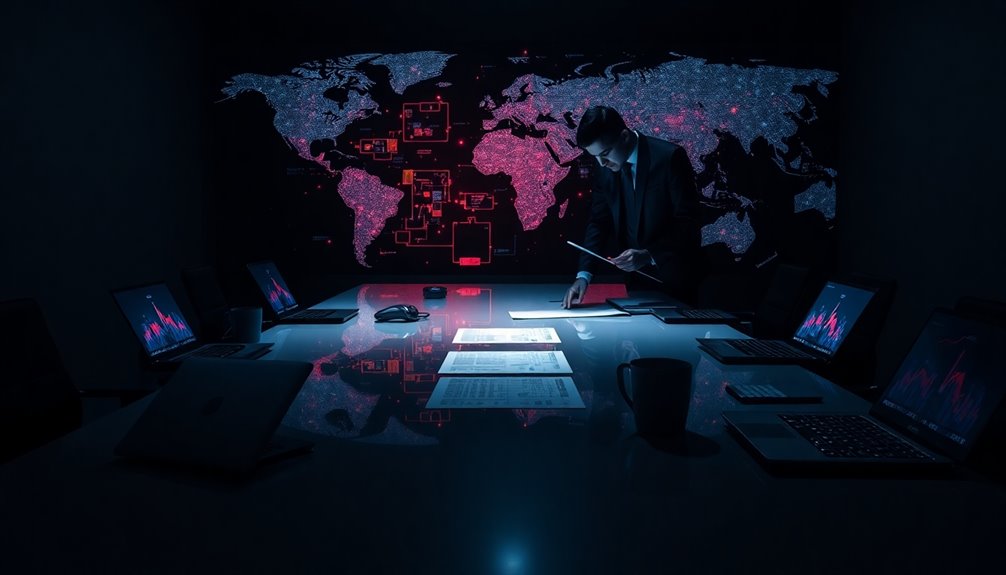
As cyber threats grow more sophisticated, telecom networks have become prime targets for cyber espionage, where unauthorized access to sensitive information can give adversaries a strategic edge. You mightn't realize just how critical these networks are; they serve as the backbone of communication, making them incredibly appealing to malicious actors. State-sponsored groups, particularly from countries like China, are increasingly involved in cyber espionage campaigns that compromise both national security and public trust.
Recent incidents highlight the severity of this issue. A well-documented campaign linked to Chinese hackers, known as the Salt Typhoon Operation, targeted multiple U.S. telecom firms, affecting millions of users, including government officials. You may find it alarming to learn that companies such as AT&T, Verizon, T-Mobile, and Lumen Technologies have been compromised. The hackers exploited unpatched vulnerabilities in hardware like Cisco routers, taking advantage of weak security configurations and trust relationships within the networks.
Recent cyber espionage campaigns, such as the Salt Typhoon Operation, have compromised major U.S. telecom firms, threatening millions of users and national security.
The techniques employed by these cyber adversaries are sophisticated. They develop custom tools that allow for stealthy access to sensitive data, often emulating GSM protocols for command and control operations. Data exfiltration focuses on retrieving subscriber information, call metadata, and even text messages. It's unsettling to think that targeted intrusions are designed to support intelligence collection, allowing hackers to maintain a foothold within critical infrastructure. The depth of infiltration can often be challenging to assess, and even after detection, hackers may linger undetected. This is particularly concerning given that the worst telecom hack in U.S. history has now been officially acknowledged by the FBI and Homeland Security.
The implications extend far beyond individual companies. When hackers gain access to sensitive communications, they pose serious risks to national security. High-profile targets like government officials frequently find themselves in the crosshairs of these attacks. Furthermore, the potential disruption of vital services—be it in energy, finance, or healthcare—raises significant concerns for all of us.
In response to these growing threats, organizations like the FBI and CISA have stepped in to provide technical guidance aimed at mitigating vulnerabilities. New regulatory proposals are on the table to enforce cybersecurity risk management plans, and telecom companies are beginning to collaborate more closely with authorities to enhance their security measures.
Technological solutions such as Intrusion Detection Systems (IDS) and Security Information and Event Management (SIEM) are now recommended best practices.
Ultimately, the global nature of cyber espionage calls for international cooperation to deter future attacks. You need to stay informed about these risks, as the consequences can touch every aspect of society.








